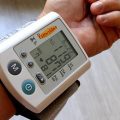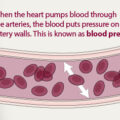By Steven Reinberg HealthDay Reporter
Teenage boys who have high blood pressure may find themselves on the road to serious heart problems in adulthood. Swedish researchers found that boys who had high blood pressure at 18 were at risk for heart failure, heart attacks, strokes and death as adults. And the risk began when blood pressure crossed 120/80 mm Hg, a normal reading.
“Hopefully, the results of this study will encourage practitioners to measure blood pressure in adolescents more often,” said lead researcher Dr. Helene Rietz of the department of public health and clinical medicine at Umeå University in Sweden. “This offers the possibility of identifying individuals with increased cardiovascular risk and enabling targeted intervention.”
Rietz said doctors may not be taking high blood pressure in adolescent patients seriously enough.
“How often blood pressure is measured in adolescents varies between countries, practices and individual doctors, and recommendations are vague,” Rietz said.
How to treat high blood pressure in teens is another tough question, particularly whether kids should take the same blood pressure-lowering drugs as adults, she added.
“If, how and when pharmacological treatment should be considered needs further study,” Rietz said. “It is reasonable to think that pharmacological treatment can be applied in selected cases after individual evaluation of lifestyle factors, co-morbidities [accompanying diseases] and overall cardiovascular risk.”
The obesity epidemic may be one cause of high blood pressure in teens, she said, adding that lifestyle factors play a major role in its development across the lifespan.
“But, she added, “These factors are closely interrelated and difficult to disentangle.”
An unhealthy diet and low levels of physical activity, for example, are the major underlying causes of obesity but also contribute directly to development of high blood pressure, Rietz noted.
“However, other factors such as increased activation of the sympathetic nervous system have been suggested, making it reasonable to say that the mechanisms of hypertension in young is not completely understood,” Rietz said.
For the study, Rietz and her colleagues collected data on nearly 1.4 million people who were in the Swedish military between 1969 and 1997. Their average age: 18.
Of these men, 29% had above normal blood pressure (120-129/80) and 54% had high blood pressure (130/80 or higher). The American Heart Association defines normal blood pressure as less than 120/80.
Over 50 years of follow-up, 1 in 10 men who had high blood pressure as teens had a major cardiovascular incident before retirement, such as heart attack, stroke or heart failure. Those with a blood pressure below 120/80 did not.
The findings were published Sept. 26 in the journal Annals of Internal Medicine.
To help teens who have high blood pressure, a variety of steps are needed, Rietz said.
“Actions must include interventions on multiple levels such as policy making by politicians, education of parents as well as promoting physical activity in school and so on,” she said. “Adopting a healthy lifestyle must be easy, affordable and accessible for everyone.”
Dr. Gregg Fonarow, director of the Ahmanson-UCLA Cardiomyopathy Center in Los Angeles reviewed the findings.
“Higher blood pressure is associated with increased risk of heart attack, stroke, heart failure, chronic kidney disease and premature cardiovascular death,” he said, adding that this study helps highlight that the increased risk can be identified in adolescents.
“This may facilitate earlier lifestyle interventions to help lower this risk and ultimately prevent cardiovascular disease,” he said.
Fonarow noted that this study involved only males, adding that research involving female teens is also needed. “Keeping a healthy blood pressure throughout life should be an important goal,” he said.
Sources
- Helene Rietz, MD, Department of Public Health and Clinical Medicine, Umeå
- University, Umeå
- , Sweden
- Gregg Fonarow, MD, director, Ahmanson-UCLA Cardiomyopathy Center, Los Angeles
- Annals of Internal Medicine, online, Sept. 26, 2023





